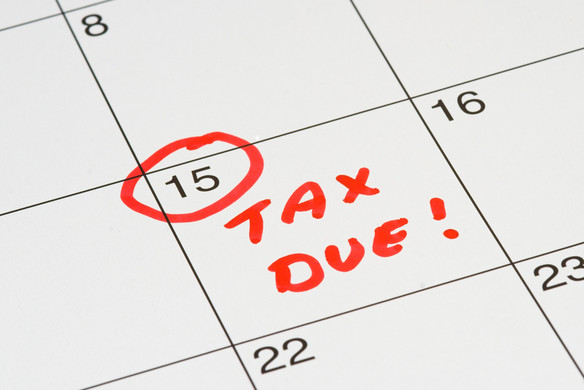Table of contents
April 15, the dreaded Tax Day, looms on the horizon. Are you ready?
As a small-business owner, one of the biggest hassles of tax time is just gathering all the stuff you need to schlep over to your accountant. You have your personal record-keeping and your business record-keeping to wrangle. Not to mention all the tax credits you may be eligible for as a small-business owner (there are a ton).
All of this can be overwhelming. So here is a handy checklist of the things you’ll need to file your small-business tax return this season. (Remember, this post is for educational purposes only and pertains to sole proprietors, single member LLCs, and others who didn’t have a corporate tax deadline on March 15. For tax advice related to your specific business, be sure to consult a reputable accountant).
General business information
Jot this down before meeting with your accountant:
- Your name
- Business name (if different)
- Social Security number (SSN) or Individual Taxpayer Identification Number (ITIN)
- Employer Identification Number (EIN)
- Business address
Income
- Gross receipts from all business activities. The IRS requires you to report all income. Think about all your sources of money-in this year, and bring that supporting paperwork to your appointment.
- Inventory. You could be eligible for a tax deduction [if your inventory grew](http://www.irs.gov/publications/p334/ch02.html#en_US_2014_publink1000313270 (i.e., your end-of-year inventory exceeds beginning-of-the-year inventory). Bring all paperwork pertaining to your inventory levels to your accountant.
- Income from any returns or refunds (for your products or services)
- Interest income from any business bank accounts
- Any other income (W-2 income, alimony, child support, lottery winnings, etc.)
Expenses
A lot of expenses you incurred throughout the year are tax deductible, so you definitely want to keep track of them. Just make sure that you keep track of all physical and electronic receipts in case the IRS ever has a question about a purchase.
Here are some common business expenses you might have made last year:
- Automobile expenses. You can write off your auto-related business expenses, but it gets tricky, so make sure to read up on it.
- Home office expenses. Along with the automobile expense deduction, the home office deduction is one of the most underutilized tax deductions. This is because it can be complicated and confusing. Read up about this lucrative, yet complicated, deduction.
- Advertising expenses. From business cards to ads on the web, these expenses are deductible. If you bought online advertising—everything from Facebook ads to keywords—make sure to bring electronic records.
- Travel. Did you leave town for business? That’s deductible. Keep receipts from your flights, rental cars, and meals (if you’re entertaining clients) on the road.
- Bank and payment processing fees. Bank fees and fees from other payment processors are generally deductible. Do you use Square Point of Sale? The processing fees paid to Square could also be tax deductible. You can find fees paid to Square in your Square Dashboard.
- Wages paid to employees. You need your payroll tax records for this one.
- Payments to subcontractors. Hire help last year? The money you pay subcontractors is tax deductible. Don’t forget to send contractors (and in some cases, the IRS) form 1099-MISC, too.
- Office supplies. The things that keep your office running day to day—printers, fax machines, even pencils and paper—are tax deductible. Keep all your receipts.
- Business tools. Do you use a paid apps to run or organize your business? These tools, which include Square’s subscription services like Appointments and Payroll, could be tax deductible.
- Assets purchased. Did you buy a new computer, office furniture, or business equipment like Square Stand that you plan to use in your business for years to come? Let your accountant know so he or she can determine whether to depreciate it or expense it.
- Any other business expenses. This includes insurance, legal fees, interest paid on a business loan, etc. If you spend it on your business, keep track of it. Keep track of it even if you’re unsure whether or not it’s a deduction. It’s better to ask a professional for advice and get a tax deduction than to miss out and pay too much to Uncle Sam.
Check off this list as you go and you’ll feel more confident as you head into your accountant’s office.
About TaxJar
Sales tax is complex. That’s why we created TaxJar — to handle the burden of sales tax while you get back to running your business. TaxJar pulls in sales tax collected from all the channels where you sell, compiles your data into return-ready reports, and can even AutoFile your sales tax returns for you in 26 states (and counting). Sign up for a 30-day TaxJar free trial today and put a lid on sales tax. And check out Square App Marketplace for more information on how to link your Square account to TaxJar’s tools.
![]()











